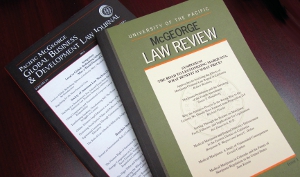Document Type
Article
Publication Date
2021
Abstract
This Article launches a critical dialogue about the abortion privilege. On the one hand, most abortion patients are low income or live below the poverty line and are disproportionately women of color. Many of these patients encounter multiple restrictions on abortion and must travel lengthy distances to abortion care facilities. These patients take center stage in abortion rights cases and in abortion rights discourse. On the other hand, there is a smaller but not insignificant group of abortion patients for whom abortion care is paid for by private or public health insurance or available out-of-pocket funds. Many of these patients live in states where abortion is unrestricted, and abortion care facilities are accessible often in the county in which they live. These patients experience abortion as a form of ordinary health care and rarely show up in abortion rights cases and abortion rights discourse. They have the abortion privilege.
This Article reveals the abortion privilege and contends that its recognition and thoughtful incorporation into abortion rights law and discourse could help redistribute the oppressive load women without the same privilege carry in connection with the right and help shore up the abortion right. First, demonstrating widespread reliance on abortion, including by women with the abortion privilege, is crucial to the stare decisis argument to uphold Roe v. Wade. Demonstrating widespread reliance on abortion would also help reduce the abortion stigma, which is both harmful to women and makes demonstrating widespread reliance on abortion so difficult in the first place. Second, the abortion debate and abortion itself has changed, but women's *2 experience with abortion as a form of ordinary health care has not surfaced as part of the public narrative about abortion. Such a narrative demonstrates that abortion is like other medical procedures and confirms that women have the knowledge to decide the outcome of their pregnancies without state intervention. Although not everyone may be willing to see abortion as ordinary health care today, they may be open to seeing it that way in the future if we begin to tell that story. Finally, as equality re-emerges as a prominent theme in legal and political arguments in support of the abortion right, to advance that argument with integrity and to coalesce a base of support around it, there must be concerted efforts within the abortion rights movement to acknowledge and reckon with the inequalities among women who make the abortion decision. The abortion privilege framework is designed to recognize these inequalities and prompt efforts to equalize them. In addition, the framework is designed to preempt the deprioritization of women without the same privilege and make clear to privilege holders that the abortion privilege perpetuates their inequality, too.
Publication Title
Rutgers University Law Review
Volume
74
Issue
1
Recommended Citation
Ederlina Co, Abortion Privilege, 74 Rutgers U.L. Rev. 1 (2021)



